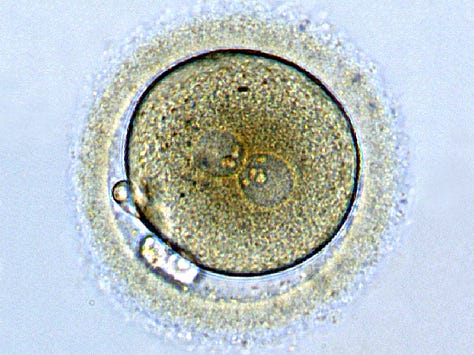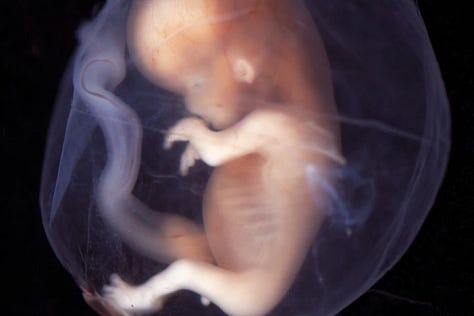The First 1,000 Days
How to Build Your Child's Lifelong Foundation
When you cradle a newborn against your chest, feeling the flutter of their breath against your skin, it's natural to think their story is just beginning. But here's a truth that might surprise you: the most important chapters were already being written while they were still swimming in darkness, their tiny heart beating its first rhythms beneath yours.



From conception to roughly their second birthday—those first 1,000 days—your child's body and brain will grow at a pace they will never match again. Not when they're learning to walk. Not when they're mastering algebra. Not even during the growth spurts of adolescence. This is the construction season of human development, and every single day matters in ways that ripple forward for decades.
The Paradox That Changes Everything
Here's what keeps researchers awake at night and what should fill parents with both reverence and hope: children during these 1,000 days exist in a state of beautiful paradox. They are simultaneously the most fragile and the most powerful they will ever be.
Fragile because their developing systems can be overwhelmed like delicate circuits in a thunderstorm. A fever, a period of poor nutrition, or prolonged stress can interrupt the intricate choreography of brain development. Their nervous systems are still learning the difference between safety and threat, still calibrating the thermostats that will regulate mood, attention, and resilience for life.
Yet, they are also powerful in a way that defies logic. During this window, small, consistent actions create exponential returns. The lullaby you hum while folding laundry becomes neural architecture. The way you respond to their midnight cries shapes their capacity to trust and be trusted. Your steady presence during their fears literally builds the scaffolding of their courage.
Scientists call this experience-dependent plasticity—the brain sculpts itself based on environment. But I prefer to think of it as love becoming biology. Every moment of attunement, every gentle touch, every patient response isn't just good parenting—it's engineering a human being from the ground up.
When the Invisible Becomes Visible
Let me tell you about Sarah, a young single mother I met at a community event. She was bouncing her four-month-old son while tears pooled in her eyes. She whispered:
"I feel like I'm failing him. I can't afford organic everything. I don't have money for those fancy developmental toys. Other moms seem to have it all figured out, and I'm just trying to get through each day."
I watched as her baby gazed up at her face with the focused intensity that only infants possess—as if her eyes held the secrets of the universe. What Sarah couldn't see was the miracle happening in that very moment. Her voice, familiar from months in the womb, was regulating his heart rate. Her scent was activating his attachment system. Her responsiveness to his cues was teaching his developing brain that the world is trustworthy, that his needs matter, that love shows up.
The most powerful medicine wasn't in any store. It was flowing between them.
🌟 The ordinary becomes extraordinary when repeated with love.
This is the beautiful irony of early development: the most sophisticated interventions often pale next to the simple act of showing up. Consistently. Lovingly. Imperfectly but faithfully.
What the Science Reveals
The research on the first 1,000 days reads like a love letter to intentional caregiving. Every major study points to the same profound truth: what happens early shapes everything that comes after.
Nutrition as Foundation: When mothers receive adequate protein, iron, iodine, and essential fatty acids during pregnancy and breastfeeding, their children show measurably higher IQs, stronger immune systems, and dramatically reduced risks of chronic diseases like diabetes and heart disease. We're not talking about expensive supplements—we're talking about eggs, leafy greens, fish, and legumes. Food as medicine, literally building better brains bite by bite.
Attachment as Architecture: Children who experience responsive caregiving develop more robust stress-regulation systems. Their brains learn that distress leads to comfort, that needs are met, that the world is navigable. These securely attached children don't just feel better—they perform better in school, form healthier relationships, and show greater resilience when life inevitably brings challenges.1
Mental Health as Infrastructure: When parents struggle with depression or anxiety, it doesn't just affect their experience—it affects their children's cortisol levels, sleep patterns, and later emotional health. This isn't about blame; it's about understanding that supporting parental wellbeing is a strategic must. You can't pour from an empty cup, and children's nervous systems co-regulate with their caregivers'.
Stimulation as Scaffolding: Talking to babies, reading aloud, singing silly songs—these aren't just sweet moments. They're laying down the neural pathways for language, memory, and cognitive flexibility. The running commentary you provide while changing diapers becomes the foundation for their internal dialogue. Your voice becomes their first teacher of rhythm, emotion, and meaning.
Consider this staggering fact: during the first 1,000 days, a child's brain produces one million new neural connections every second. It's the fastest, most complex construction project in human biology. And you—whether you're a parent, grandparent, caregiver, or community member—are one of the chief architects.
The Ripple Effect
Here's where the story gets even more remarkable: the effects don't stop with the individual child. Economists studying early childhood interventions have discovered something that should reshape how we think about social investment. Programs that support families during the first 1,000 days yield higher returns than job training, tax incentives, or even crime prevention programs. We're talking 7-10 dollars returned for every dollar invested.
Why? Because children who receive quality care during this window grow into adults who contribute more to society, require fewer social services, have better health outcomes, and raise the next generation with greater capacity. It's the ultimate compound interest—not just financially, but socially and emotionally.
When we invest in the first 1,000 days, we're not just helping individual families. We're strengthening the fabric of community itself.
Small Steps, Profound Effects
You don't need perfection. You just need to be truly present. You don't need endless resources. You just need to be truly intentional. Here are the practices that research shows matter most:
Feed with Intention: Prioritize whole foods during pregnancy and beyond. Iron-rich foods like spinach and lean meats support brain development. Omega-3s from fish and walnuts build the infrastructure for learning and mood regulation. But remember—a mother eating a simple meal with joy and gratitude is more powerful than a stressed mother consuming superfoods.
Touch as Medicine: Hold your baby often. Respond to their cries not as interruptions but as communications. Skin-to-skin contact regulates their temperature, heart rate, and stress hormones more effectively than any technology. Your arms are their first experience of safety in the world.
Words as Building Blocks: Narrate your daily life. "Now I'm putting on your socks. Oh, you're kicking your feet! You have strong legs." This running commentary becomes the foundation for language development. Read aloud—even to newborns. Let your voice be the soundtrack of security.
Protect Your Own Well-being: Ask for help without shame. Rest when possible. Seek support for your mental health. A parent who models self-care is teaching their child that their own needs matter too. Remember: taking care of yourself isn't selfish—it's essential infrastructure for taking care of others.
Create Predictable Rhythms: Babies don't need rigid schedules, but they thrive on predictable patterns. Regular feeding, consistent bedtime routines, and reliable responses to their cues create the sense of safety from which curiosity and exploration can flourish.
🌱 Every action and every word is a vote for who they are becoming.
The Larger Truth
It's tempting to think of child development as a private family matter, something that happens behind closed doors with good intentions and individual effort. But the truth is more interconnected than that. Healthy children require healthy systems: accessible healthcare, supportive communities, policies that honor the work of caregiving, and cultures that understand the profound importance of these early years.
When I watch a mother in a grocery store, baby strapped to her chest, patiently responding to their fussing while navigating her shopping list, I see more than individual parenting. I see someone doing the invisible work of building society's future. That baby's developing brain is learning trust, resilience, and emotional regulation in the aisles between the cereal and the produce.
This is why supporting families during the first 1,000 days is such a good investment. It's why paid parental leave, quality childcare, nutrition programs, and mental health support aren't luxuries but essential infrastructure for a functioning society. When we make it easier for parents to be present, responsive, and healthy, we're literally building a better world, one neural connection at a time.
The Long View
The first 1,000 days don't guarantee a perfect life. Children are resilient, adaptable, and capable of healing from early challenges. But they do create a foundation—a launching pad for everything that comes after. Think of it as setting up your child's internal operating system, calibrating their capacity for joy, resilience, learning, and love.
Some days will feel impossibly hard. You'll be tired, overwhelmed, uncertain if you're doing enough. In those moments, remember this: the very fact that you're wondering if you're doing enough probably means you're doing plenty. Love isn't a feeling you wait to have—it's a series of actions you choose to take. And in the first 1,000 days, those small, faithful actions are literally shaping a human being.
✨ What you're doing matters more than you think. And it will matter longer than you can imagine.
The first 1,000 days are not about getting everything right. They are about showing up, again and again, in small, faithful ways. They are about understanding that love is both a feeling and a decision, both a gift and a practice. They are about trusting that your presence, your attention, and your care are writing a story that will be told for generations.
Major developmental science literature and meta-analyses confirm these findings, noting that secure attachment contributes not only to better academic performance but also to improved classroom social functioning and peer relationships—factors integral to school success (e.g., https://pmc.ncbi.nlm.nih.gov/articles/PMC4085672/)

